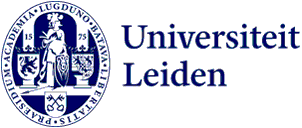
Introducing: Isaac McKean Scarborough
Isaac McKean Scarborough has been working at the Institute for History as Lecturer since September 2021. Below he introduces himself!
I’m delighted to be able to call the Institute for History at Leiden University my academic home, and for the opportunity to work with the Institute’s eminent scholars. I trained as a historian of the USSR, but have always found my research interests – modern Central Asian politics, post-Soviet economic development, agricultural monocultures – to be as much interdisciplinary as strictly historical. This has made the Institute for History something of an ideal academic environment, where history intertwines with politics, economics, culture, and so much more. I think it will suit me immensely, and I’m very glad to be here.
Years before my PhD, I first travelled to Central Asia to teach English in rural Turkmenistan. I’m originally from the United States, and I had joined the US Peace Corps after university, which gave me the chance to live in an environment I had known nothing about, and to learn more than I ever would have otherwise about the Soviet Union, its post-successor states, and Central Asia. I found the region, and what I learned, more fascinating than anything I had previously encountered. In particular, I was intrigued by the very heterogenous mix of peoples living in Yolöten, the small town in which I taught – a surprisingly Sovietized outpost of Russian-speaking multiculturism not far from the Turkmen-Iranian border. I could find nothing written about how this community had come into existence in such a form, and so I spent the next few years working on my Russian and struggling with materials in Russia’s academic libraries to try to work out its place in the broader history of Soviet ethnic deportations and resettlements in the 1930s and 1940s. This would form the basis of my first academic publication and inspire further work on deportations, this time on the mass removal of Chechens and Ingush to Kazakhstan and Central Asia in 1944.

The Soviet and post-Soviet worlds have remained a source of fascination for me ever since, a sense that motivated my PhD at the LSE (on Tajikistan’s transition to independence before and after 1991) and in more recent work. The region can be opaque to outsiders: poorly understood and poorly documented in the media, it is an oddly disregarded other, even in moments of international crisis, such as at the moment, where Western presidents will note that notwithstanding the ongoing war initiated by Russia, the “real concerns” exist elsewhere. Yet the former Soviet states remain central to global politics and to certain economic spheres, and there is much to be gained from studying them closely. I try to pass on my fascination in my teaching, and to show students just how multifaceted and complex the region is – a place so much bigger, and more complicated, than often represented. I’m very much looking forward to continuing to teach about Russia, Central Asia, and rest of the post-Soviet region in the coming years at the Institute.
